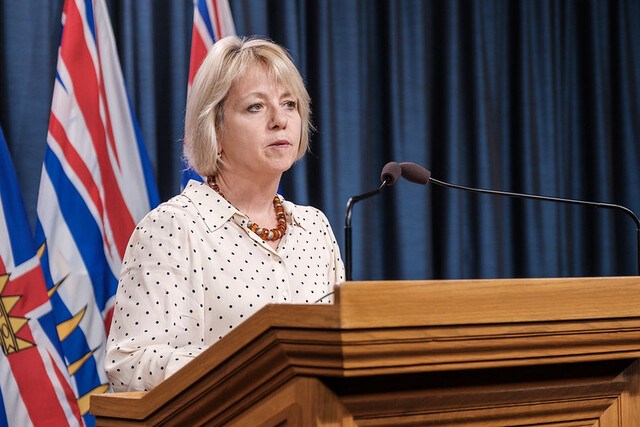By Nicholas Johansen/Castanet
Dr. Bonnie Henry fought back tears Thursday as she spoke about the 170 overdose deaths across British Columbia in May.
Thursday morning, the BC Coroners Service reported B.C. saw more overdose deaths last month than any single month in the province's history, equalling about 5.5 deaths every day. This is up 93 per cent from May 2019.
Dr. Henry, B.C.'s provincial health officer, said the number one driver of the spike has been a “dramatic increase" in drug toxicity as a result of the COVID-19 pandemic.
“That has to do with the same thing that's interrupting supply chains for other issues, and that's border issues –more challenges getting product in and things are becoming less available and therefore more expensive and more toxic,” Dr. Henry said. “And that's not unique to British Columbia, we're seeing that across the country.”
She also noted that those using drugs are more likely to do so alone during the pandemic, making the potential for a fatal overdose more likely.
Last month wasn't an anomaly for high overdose numbers in B.C. In the first five months of the year, 554 people have died in B.C. from overdoses, compared to 467 in the same period of 2019.
“We are not only seeing people die in the Downtown Eastside, this is the case across B.C.,” Dr. Henry said. “In Southern Vancouver Island, in the Interior, some of the highest rates that we've ever seen of people being affected by the toxic street drug supply.”
As a result, she renewed her prior calls to the federal government, asking for alternatives to the criminal justice system for those suffering from addiction.
“Revisions to the Controlled Drugs and Substances Act that take away those criminal penalties for people who use small amounts of drugs for their own use,” she said, clarifying that she's not advocating for removing criminal charges for dealers or drug manufacturers.
“We know that addiction and substance use disorders are not things that are solved by involving people in that wheel of the criminal justice system."
Back in March, the B.C. government announced it would begin allowing doctors to prescribe alternatives to street drugs for drug users concerned about the street supply growing more toxic due to COVID-19.
“We've ramped up our access for people who use drugs in British Columbia to receive prescription alternatives; it's been slow starting,” she said, adding that about 2,000 people in B.C. have received these prescriptions to date.
“We're looking at ways that we can make it simpler for people based on protocols so that you don't need to have a meeting with a physician and a prescription.”
She hopes those changes can come “in the near future.”
Read more from Castanet



